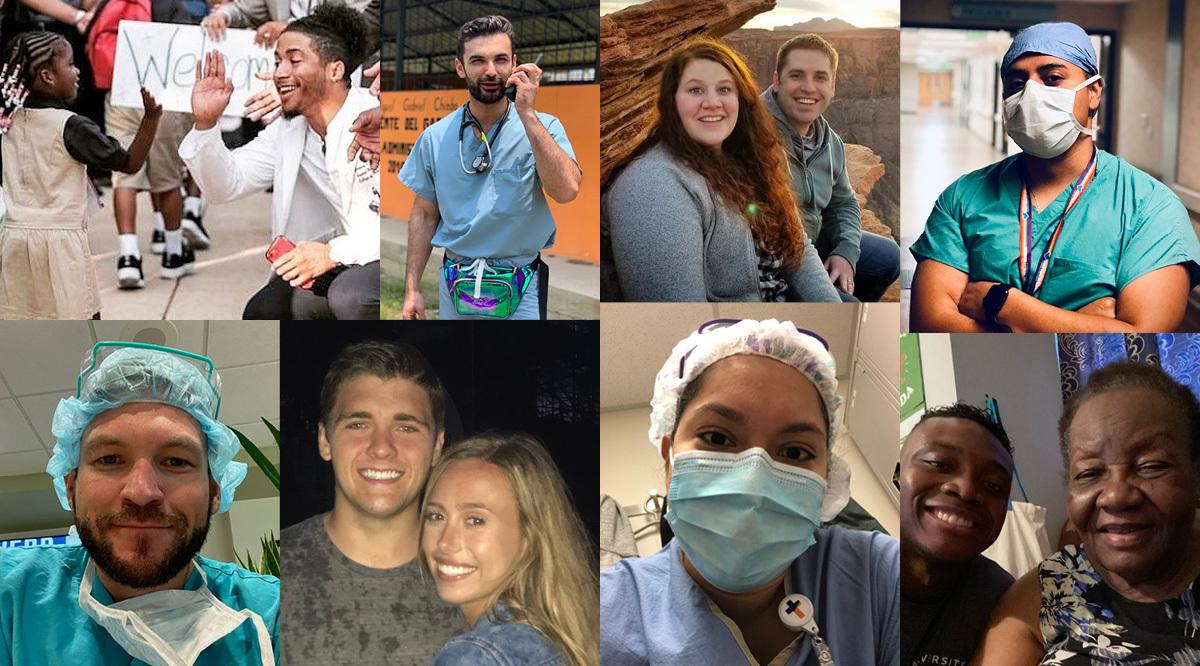For most medical students, Match Day is the most anticipated day of their medical careers — the day when they find out where they will spend the next few years training in their preferred specialty.
For first-generation students, who are the first in their families to graduate from college, the day is all the more special, as these students and their families celebrate yet another milestone among many. “I’m also the first one in my family to graduate from high school,” says Zackary Brown, a fourth-year medical student at Howard University College of Medicine in Washington, DC, who received his undergraduate degree from Vanderbilt University in Tennessee. “I am truly blessed.”
The AAMC estimates that 12.4% of 2021-2022 matriculants to MD-granting medical schools are first-generation college students, up from 10.8% in 2018-2019. AAMCNews interviewed eight students, who shared what it’s been like to navigate medical school as a first-generation student, as well as their hopes and plans for Match Day and beyond. Here are their stories.
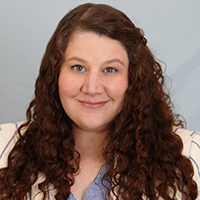
Samantha Marazita, 37
Nova Southeastern University Kiran C. Patel School of Allopathic Medicine, Davie, Florida
Internal medicine
“Growing up, it never dawned on me that I could be a doctor,” Samantha Marazita says.
After all, her parents were dropouts: her father from middle school, her mother from high school. Her dad supervised fast food restaurants and her mom served cocktails in casinos in Reno, Nevada. “We’re not smart people, we’re not school people,” Marazita figured. “We’re hard-working people.”
Ironically, Marazita’s father planted the seeds for her future interests. He routinely complained of ailments that she’d research on the computer. Her dad was nervous, not sick, but young Marazita got hooked: “I wanted to know how the body works, how the heart works, how the liver works. I did all of this reading on my own, and I would give people unsolicited medical advice.”
Marazita bucked family history by going to college — she studied film, because she liked movies — while supporting herself by working in casinos (as a concierge, for example). When she landed videography and photography jobs in the hospitality industry, she thought she had found her career.
Yet she kept researching medical ailments for friends and colleagues. At the same time, she was inspired by her husband, who had immigrated from Georgia to get a graduate degree in medical physics. She told herself to commit to pursuing her career dream, or “I'm just giving myself an excuse not to.”
Marazita earned a BA in chemistry and a BS in biology at Metropolitan State University of Denver before starting medical school at age 33. She hopes to match into internal medicine and will be happy wherever her residency takes her.
“It sounds cheesy, but it’s such a privilege to do all of this: to be a student, to keep learning, and to help people,” she says. “No matter where I do it, the fact that I’m doing it is enough for me.”
— Patrick Boyle, Senior Staff Writer
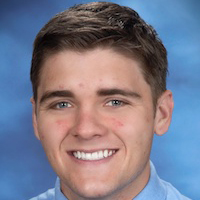
Justin Rice, 30
Indiana University School of Medicine, Indianapolis
Family medicine
“Athletes and rock stars” — that was the category into which Justin Rice placed physicians growing up, especially the doctors who treated him for osteochondritis dissecans, a joint disease that resulted in severe knee pain and eventually four surgeries. “Nobody in my family was even in health care, let alone a physician. It just seemed so unattainable.”
But that didn’t stop Rice from taking some pre-med courses as a student at Indiana University – Purdue University Indianapolis and, when he did well in those, to take the MCAT® and apply to Indiana University School of Medicine.
It wasn’t always easy. “The application process for medical school was a little difficult, being a first-gen student, especially compared to some of my friends whose parents are college graduates or even physicians,” Rice admits. “Once we got to medical school, there was still a feeling of being left out. [Other students] just understood these unwritten rules of how to stand out, how to put yourself in the best position” to excel.
So Rice and two other first-gen students co-founded the First Gen Committee at IU School of Medicine. At first, the group sponsored events to build community but later hosted first-gen residents and faculty who could provide insights into how to navigate the next stages of a medical career.
Rice is, himself, looking forward to his next stage: a residency in family medicine, hopefully in Indiana so that his wife, Danielle — a physician assistant at IU Health in downtown Indianapolis — doesn’t have to switch jobs. Rice is planning to spend Match Day with Danielle, her parents, his parents, and his brother.
“More than anything, [my family] is just happy that I’m at the end in terms of getting my degree and starting my residency. That’s one nice thing about coming from a family that doesn’t have a history of doctors. Anything I do will make them proud.”
— Gabrielle Redford, Managing Editor
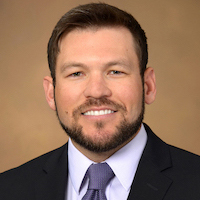
Cody Cox, 35
East Tennessee State University – Quillen College of Medicine, Johnson City
Anesthesiology
Growing up in a small, rural town outside of San Antonio, Texas, and raised by a single mother who supported her family cleaning houses, Cody Cox didn’t think of college as an option.
After high school, he enlisted in the Navy and spent 10 years working as a helicopter medic and rescue swimmer, which sparked his interest in medicine. But before he could apply to medical school, he needed to get a college degree.
“If your parents didn’t go to college, you don’t know what to expect,” Cox says. “You don’t know what the road bumps will be.”
Still, he pushed forward, taking night and online classes at a community college and later attending the University of Tampa in Florida and finding mentors who encouraged him to apply for medical school. After 10 years of military service, he also qualified for GI bill benefits, which allowed him to devote himself full time to his studies and the volunteer work necessary to be a competitive applicant.
He was accepted to and decided to attend East Tennessee State University – Quillen College of Medicine, in part because of its welcoming approach to veterans. Cox has formed close friendships with the other veterans in his class, who can relate to his struggles as a “nontraditional” student.
And while medical school has been tough, Cox says that the difficulties he’s faced in previous stages of his life have helped him put things into perspective.
“The most difficult days in medical school were still better than some of the easiest days in the Navy,” he says.
On Match Day, Cox plans to stand by and support his classmates as they open their envelopes, but will keep his closed until he can sneak away and call his mom and siblings back in Texas.
“They’ve been there through this entire journey,” he says. “They’re just as excited as I am.”
—Bridget Balch, Staff Writer
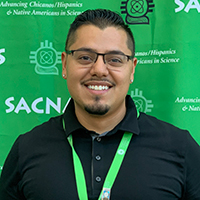
William Mundo, 27
University of Colorado School of Medicine, Aurora
Emergency medicine
High school was a tough time for William Mundo, now a fourth-year student at the University of Colorado School of Medicine in Aurora. His beloved dad, who was living in the United States without legal authorization, went back to Mexico to care for his own father, and Mundo worried terribly that he’d never return.
“I rebelled and made some poor decisions during high school,” he says, and was ultimately expelled for a year.
But Mundo recognized that his mistakes had hurt his family. “It was like a slap to the face of my parents’ efforts for me,” he says. Both parents worked hard — his mom as a housekeeper and his dad in construction. “At that point, I recognized that I am privileged to be in this country and that I should get my life together.”
Mundo participated in the Upward Bound education program and finished the academic year by studying at home. He then attended the University of Colorado Denver, where he majored in public health and ethnic studies, and went on to complete a master’s degree from the Colorado School of Public Health. Next was medical school, with an eye toward working in a medically underserved community like his small hometown in rural Colorado.
Now Mundo hopes to study emergency medicine. “Many people in my family didn’t go to doctors because they couldn’t afford it, so a lot of the care we had was in the emergency room,” he explains. “My grandmother passed away from high blood pressure and uncontrolled blood sugars because she couldn’t pay for her medicines.”
Come Match Day, Mundo says his predominant feeling will be gratitude toward his extended family, including his father, who was tragically murdered in Mexico.
Mundo has decided to celebrate Match Day at home since he couldn’t bring himself to narrow his guests to the two allowed at the in-person event. “I feel so much gratitude for the people who have helped lead me to this point,” he says. “I acknowledge that I’m standing on the shoulders of giants.”
— Stacy Weiner, Senior Staff Writer
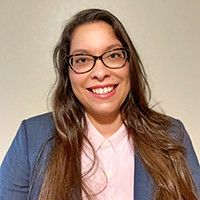
Karina Diaz, 30
University of Washington School of Medicine, Seattle
Pediatrics
Karina Diaz accepted a big challenge the day she started kindergarten: Learn English through instant immersion.
Little English was spoken in Diaz’s northern California home during her childhood. Her parents had immigrated as young adults from Mexico “to find opportunities, to move up in the world,” Diaz says. They met in the United States, got married, and seized those opportunities: Her mother ran day care at home, while her father worked as a gardener, line cook, janitor, park ranger, and now carpenter.
After mastering English, Karina, the oldest of the Diaz’s four children (all girls), developed an interest in science, particularly medicine and research. One event that influenced those interests was her first experience with a family death, in grade school: that of her grandmother, in Mexico, from cancer.
“I thought, ‘We have doctors, and doctors fix everything like that,’” Diaz says. “Eventually, I figured out that that’s not how it works.”
Diaz studied microbiology at the University of California, Davis, then earned her PhD degree at UW School of Medicine, specializing in virology. When her doctoral thesis was printed in book form, her family wanted copies. “They thought, ‘We don’t understand it, but our kids will know that someone in the family did this, so maybe they can, too,’” Diaz says.
As she completes her MD, Diaz plans to specialize in pediatrics. On Match Day, the parents and four sisters will gather at the family home in San Bruno to await the results and celebrate.
“It’s my mom’s birthday,” Diaz says. “She’s super excited.”
— Patrick Boyle
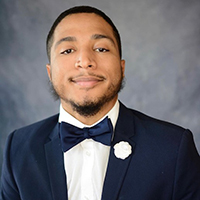
Zackary Brown, 27
Howard University College of Medicine, Washington, DC
Pediatrics
Zackary Brown didn’t know he was supposed to study for the ACT college entrance exam. He did know he needed to take the test to get into college, but “I didn’t have anyone to say, ‘Oh, you should probably study for that.’”
Brown grew up in Wichita Falls, Texas, and attended high school with predominately Black and Brown students, not many of whom “make it out.” But watching his mother raise him and his two brothers while holding down two jobs made Brown want to do more with his life. Hence, the college applications — he attended Vanderbilt University, where he double majored in neuroscience and in medicine, health, and society — and a subsequent decision to pursue medicine at Howard University College of Medicine.
“It’s been a huge challenge to figure out how to sit in these spaces and find your own voice and be your own advocate in places that aren’t built for you,” he says. “I’m one of the few Black men in these health spaces.” In fact, Brown is the only medical student member of the Action Collaborative for Black Men in Medicine, a joint effort by the AAMC and the National Medical Association to attract more Black men to the field.
“What has been truly helpful is that in every chapter, I’ve always had a teacher or a friend who believed in me.”
Chief among those supporters is his mom, Brandy Brown-Nash. “I can remember as a child her praying and saying, ‘Whatever you choose, I am 100% behind you. I’m here for you. Whatever it costs, I’ll help you figure it out.’”
On Match Day, Brown’s mom and his two brothers, Andrew and Nicholas, will be the only ones in attendance at Howard University COM’s in-person ceremony. But Brown is also hosting a separate celebration at another venue, where he will open the envelope to see where he’ll be attending residency in pediatrics. “I wouldn’t be where I am if it weren’t for every member of my family and friends and village,” he says. “I am nothing if not for my village.”
— Gabrielle Redford
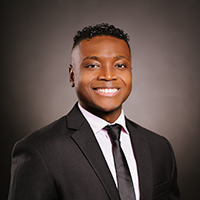
Patrick Hooke, 29
Creighton University School of Medicine, Omaha, Nebraska
Radiology
Patrick Hooke still recalls the day in 1997 when, during Sierra Leone’s civil war, soldiers raided his family’s home. “I remember kneeling down in front of them at the age of four,” says Hooke. “The next day, my family left our village with all our belongings.”
But Hooke considers himself relatively lucky. “A lot of child soldiers were taken at 6 or 7, given guns, and taught to kill,” says the fourth-year student at Creighton University School of Medicine in Omaha. “I could have easily been on the other side of that.”
Once Hooke and his parents made it to the United States, life wasn’t easy either. They moved a lot, mostly within New York City, looking for affordable places to live since neither of his parents had jobs. Hooke struggled to learn English and had to work hard to catch up academically. Health care was a challenge as well, with family members ill-equipped to navigate the complex U.S. system.
In fact, the family struggled mightily when his father developed prostate cancer. Hooke was a sophomore at Grinnell College in Iowa, and his mom concealed an upcoming surgery for fear of disrupting his final exams. By the time he returned, his father had taken a turn for the worse, was in a coma, and soon passed away.
“None of my family members knew what was going on,” he says. “What made me pursue medicine was that I never want my mom, or any of my family members, to be in a position where they get lost in the health care system again.”
Hooke, who interviewed with eight radiology programs, says his mother has been bursting with pride in the weeks leading up to Match Day.
“She could never have pictured this from where we were 20 years ago,” he notes. “Her level of pride is already so high that it’s probably how I will feel on Match Day.”
— Stacy Weiner
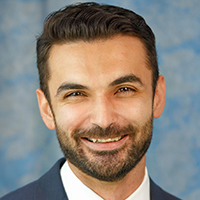
Olgert Bardhi, 28
University of Florida College of Medicine, Gainesville
Internal medicine
During Olgert Bardhi’s childhood in Albania, his family could barely afford food. His father was a carpenter; his mother stayed home to raise him and his brother. They only saw doctors in emergencies because they often required bribes for treatment.
But no matter how hard times were, Bardhi’s parents encouraged him to focus on his education.
“Whatever we needed, they would find a way to provide that for us,” Bardhi recalls.
So when Bardhi’s family was selected to receive green cards to the United States through the lottery system when he was 11, they took the opportunity.
Attending school in Florida, Bardhi was often bullied for his “weird” name and for not speaking the language. He spent the summer learning English by watching cartoons and looking up words in the dictionary.
His parents encouraged his studying in the few hours they had together between working two jobs each.
Instilled with these values, Bardhi applied and was accepted to the University of Florida in Gainesville, which he financed by working part time. His natural inquisitiveness led him to double major in psychology and biology, and later, to earn a master’s degree from the same university focused on researching therapeutic approaches to neurodegenerative diseases.
But after several years in the lab, Bardhi realized he had a different calling. “I love research, but I realized I also wanted to work directly with patients,” he says.
Bardhi attended the University of Florida College of Medicine and is now hoping to match into an internal medicine residency.
Match Day will be bittersweet, as he knows wherever he goes will take him farther away from his family than the short drive he is used to.
The separation “will be tough for all of us,” he says. But no matter where he matches, Bardhi knows his family will be proud.
— Bridget Balch
